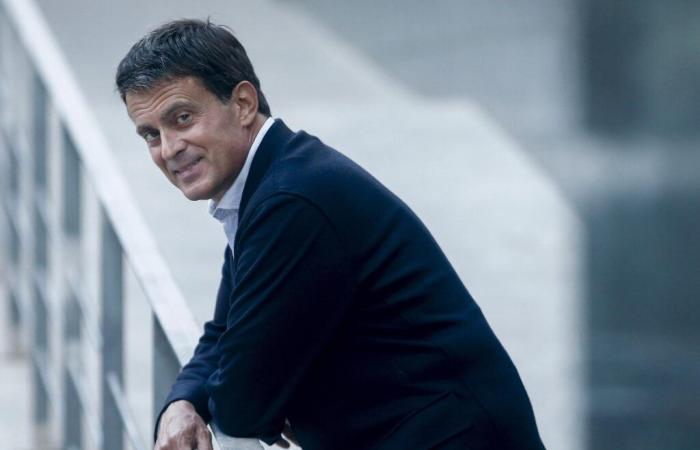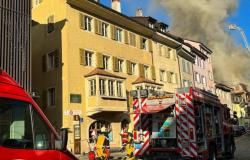Luis Miguel Pascual
Paris, Dec 23 (EFE).- On both sides of the Pyrenees, the Franco-Spanish Manuel Valls has demonstrated an irrepressible attachment to politics that has led him to be from socialist prime minister in France to candidate for mayor of Barcelona in a training supported by Ciudadanos.
Now, when it seemed that the front line of politics had ended for him, he takes another leap to become the Minister of Overseas in the Government of the centrist François Bayrou, under the auspices of President Emmanuel Macron.
At 62 years old, twelve years after having failed in his attempt to be the socialist candidate for the Elysée, six years after his abortive conquest of the Barcelona City Council, Valls has ended up opening the door that was closed to him, time and again, by the current president.
The politician born in Barcelona but raised in France, forged in socialism early, with a career that began in municipalism, now faces a new adventure in the uncertain Bayrou Executive, which with fragile support tries to make its way in the turbulent French panorama.
He will be one of Bayrou's heavyweights in the face of the impossibility of opening his Government to other currents beyond the center and the right, the same foundations that supported that of his predecessor, Michel Barnier, who was the shortest prime minister of the V. Republic with only three months duration.
Born in the Barcelona neighborhood of Horta in 1962, he did not obtain French nationality until he was 20 years old.
One of his favorite phrases – which he loves to repeat whenever he can – is that he “learned to be French.” Those words condense its most deeply rooted principles: voluntarism, pragmatism, republicanism.
Prime Minister between 2014 and 2016, with François Hollande in the presidency, he left office to launch the race for the Elysée, the biggest failure of his career. He did not even manage to overcome his party's primaries, defeated by Benoit Hamon, which led him to betray his political family and support Macron.
He took refuge in Spain, where he aspired to be mayor of Barcelona, which he also failed to achieve in 2018, although there he made the decision to give the baton to the leftist Ada Colau to the detriment of the nationalists.
A sign of his convictions. At the age of 15, Valls recalls, he had already participated in his first demonstration. Ironically, it was the historic Diada of 1977, where a million people demanded a Statute.
Great figures of culture and art who had become friends with his father, the Catalan painter Xavier Valls, and his mother, the Swiss Luisangela Galfetti, paraded through his family home, in the bohemian Parisian Marais neighborhood.
He naturally assumed his triple French, Spanish and Catalan culture until at the age of 16, when he went to pick up his residence card and undergo an “interrogation” at the police station, he “understood” that he was not French despite living in that country for child, as he acknowledged in an interview with the newspaper Le Parisien.
While still a teenager, he joined the Socialist Party because of his sympathy with the centrist line defended by Michel Rocard, which contrasted with the leftism of President François Mitterrand.
After holding different positions in municipal and regional administrations, Prime Minister Lionel Jospin gave him his first big opportunity by making him his communications advisor in 1997.
By then he had already entered Freemasonry, within the obedience of the Grand Orient of France, a militancy from which he renounced in 2005 due to his political occupations.
Valls fondly recalls his journey as mayor of Évry, the first major position he held as a political leader, which offered him the visibility he craved.
He cultivated there, in the Parisian periphery, the traits that gave him his own profile: toughness in security, demanding secularism, moderation in the economy.
His management since 2012 at the head of the Ministry of the Interior, appointed by Hollande, put him in orbit as a natural successor to the president, who was forced to turn to him as prime minister only two years later, when his popularity ratings began to plummet. .
But he could not avoid being dragged by the fall of Hollande and the rise of Macron, who ended up absorbing his political space.
After his Barcelona adventure he had disappeared from the front line, although he frequently appeared as a television talk show host, always defending his values of order and moderate left, although he never regained contact with the party that brought him to prominence in France.






